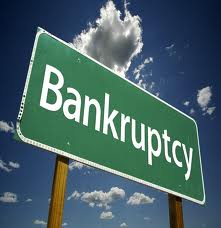 WHAT IS CHAPTER 7?
WHAT IS CHAPTER 7?
by Tom Coates
Chapter 7 bankruptcy is often referred to as straight bankruptcy, or liquidation bankruptcy. It is known as a liquidation bankruptcy because the trustee in bankruptcy can sell any non-exempt or unprotected assets and pay the money to your creditors. In a Chapter 7 bankruptcy, most debts are wiped out, and the debtor generally loses only non-exempt property. Despite the term liquidation bankruptcy, rarely is property liquidated, because most property is protected by exemption under state law. When an asset is exempt from legal process, a bankruptcy trustee cannot take the property.
The purpose for filing a Chapter 7 bankruptcy is to discharge a debt, or to cancel some debtor obligations. A Chapter 7 petitioner does not have to make payments out of his or her future income to have debts discharged. A Chapter 7 asks the court to erase your debts forever. In exchange, you might have to give up some of your property, such as non-exempt assets. It is important to understand that some debts cannot be discharged in a Chapter 7 bankruptcy.
WHAT IS CHAPTER 13?
Chapter 13 is a consolidation of debts into one repayment plan and allows an individual to reorganize debts and to pay the unsecured debt without any further interest accumulating. It also protects the debtor from creditors while the debt is being paid off. Unlike Chapter 7 bankruptcy, a Chapter 13 petition does not ask for an immediate discharge of debts. Instead, he or she offers a plan to repay at least part of those debts over a period of time, usually three to five years, depending on the debtor's disposable income. While a Chapter 13 plan is in place, the debtor is protected from lawsuits, garnishments and other creditor action. The Chapter 13 debtor's plan must be approved by the court. A person who files Chapter 13 bankruptcy remains in bankruptcy until all of the payments in the plan have been made, and the judge issues a discharge of the debts. It is critical to know that Chapter 13 does not require all your debts to be paid one hundred percent or "dollar on the dollar". As in Chapter 7, some debts cannot be discharged in Chapter 13 unless they are paid off in full. Simply stated, a Chapter 13 reorganization can help you reduce debts, eliminate interest charges and spread payments over time. If you are behind in mortgage payments, a reorganization can help you catch up on back payments over time, without losing your home. A Chapter 13 plan of reorganization may allow you to keep property that you may have been forced to liquidate, or turn over to the court, in a complete Chapter 7 liquidation bankruptcy.